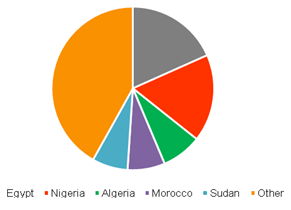Finance professionals looking for a change in their career might do well to consider working for an Islamic bank or financial services company. Analysts said there are many vacancies to fill within the industry, while attractive pay packages await the successful candidates.
It is estimated that by 2015, Islamic banks and financial services firms in the UAE will need to hire additional manpower for 8,000 positions, thanks to new products being introduced and the ongoing push to make Dubai the capital of the world’s $8 trillion (Dh29.4 trillion) Islamic economy in three years.
Likewise, the employee population in the sector is forecast to double, from around 10,000 to 20,000 workers. Across the globe, the need for more staff is even bigger, with several companies requiring a total of 50,000 new professionals next year.
Geetu Ahuja, head of GCC at the Chartered Institute of Management Accountants (Cima), which offers Islamic finance programmes, said the popular jobs and positions at the moment are certified Takaful specialists, specialist Sharia scholars and Islamic finance lawyers, among many others. Companies looking to hire new personnel include banks, financial consultancy firms and higher education institutions, such as universities.
His Highness Shaikh Mohammad Bin Rashid Al Maktoum, Vice-President and Prime Minister and Ruler of Dubai, earlier launched the initiative “Transforming Dubai into a global centre for Islamic sukuk.” Similar to conventional banking, Islamic finance offers products and services to both Muslim and non-Muslim savers, investors or borrowers, but the difference is that it follows the principles of Sharia, the moral code laid out in Quran.
Right skills set
While more jobs are and will be up for grabs within the industry, making a career change to the Islamic field may prove to be a difficult one, especially for those lacking the right skills sets. Financial institutions are often heard saying there is a serious scarcity of professionals with the required qualifications and experience.
“If you’re looking at this industry growing from over a trillion US dollars and is expected to grow by 2017 to about $2.67 trillion, you can imagine, if that is their vision, that they obviously need the right set of people and I don’t see an organisation having that kind of provision compromising on the skills set that could actually take them to that vision,” Ahuja told Gulf News.
According to the Workplace Planning Study by the Dubai International Academic City, half of the 60 GCC banks surveyed are having difficulty hiring graduates for entry-level positions. Another 23 per cent of the respondents said that filling mid-level roles is a problem, while only a small proportion (5 per cent) struggle to hire for senior roles.
Part of the problem is that there aren’t enough programmes that help groom professionals and fresh graduates into the kind of workers the industry needs.
“Universities and training providers must refine their programmes and courses to support the sector, equipping young talent with the level of specialism and sophistication required by employers,” Rashid Mahboob, senior vice president, customer excellence at Dubai Islamic Bank, earlier said at a forum in Dubai. “Similarly, employers must dedicate themselves to providing genuine on-the-job training.”
Jobseekers can also expect tough competition, as an increasing number of people, both Muslims and non-Muslims, is seeking a career in Islamic finance. “There are a number of professionals which we’re seeing growing by the day in terms of their interest in joining the industry,” said Ahuja.
Every religion
Looking at the database of students who have pursued Islamic finance qualification with Cima, Ahuja said almost every religion is represented.
“Getting into the industry is not more from a cultural aspect. You’d see a mix of them. When I walked into Islamic banks and institutions myself, I saw a good proportion of a mix of Muslims and non-Muslims,” she added.
The good news for unqualified jobseekers, though, is that they can increase their chances of landing a position by taking up academic certificate programmes designed for professionals seeking to pursue Islamic finance. At Cima, for example, anyone, regardless of their university degree or employment history, can obtain an Islamic finance qualification in less than a year.
“The qualifications are based on your pace. You can finish the qualification from one month to four months. It’s basically quite flexible. There are no time limits as such,” said Ahuja.
By Cleofe Maceda Senior Reporter
Gulf News 2014. All rights reserved.
http://www.zawya.com/story/Islamic_finance_offers_strong_prospects_for_professional_growth-GN_21032014_220309/



